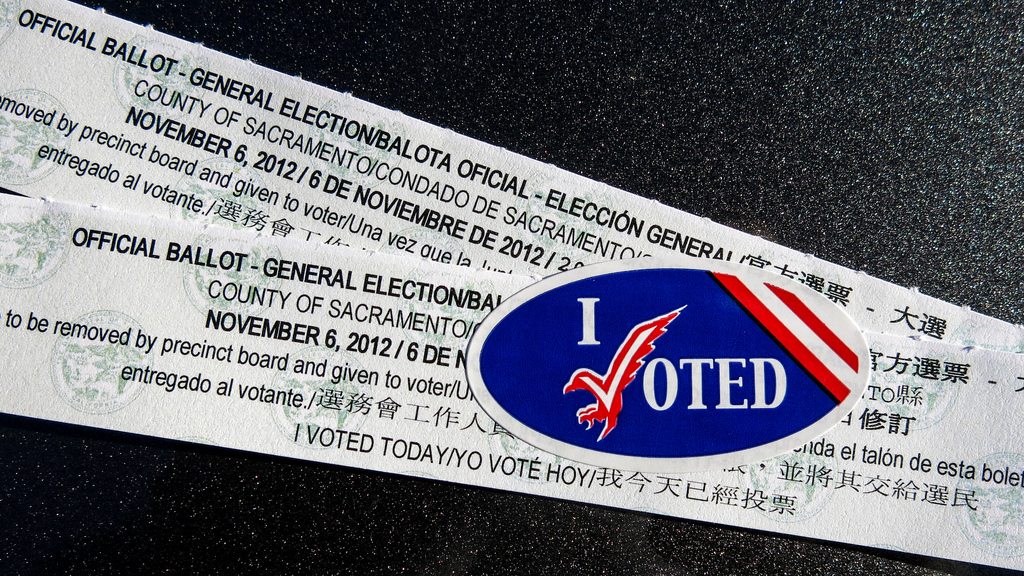The tropes of post-election media coverage are so trite that news junkies could recite them by heart: some races are called early, some are “too close to call,” some networks jump to call races before the others. Journalists like Dave Weigel have become famous for memes like “it’s all about turnout” and “crucial Waukesha county.” Data journalists like Steve Kornacki pull up big maps and tell us what votes are coming from where and who is likely to win based on comparative percentages.
But at the end of the day, TV networks want to send their viewers to bed with answers, journalists need definitive copy for the Wednesday morning edition and op-ed writers must deliver their scheduled smart takes. The result is that election night coverage is considered the default version of events, and ballots counted in the days and weeks afterward an afterthought or exciting aberration. States like California that make expansive efforts to count every eligible vote and give voters maximum opportunities to make their voices heard are resented as disrupters of the natural order, inconveniences to the unity of the narrative.
So when results change in close races several days after Election Tuesday, it is treated as a remarkable phenomenon. Headlines describe lead changes as “roller coasters” and “dramatic comebacks.” Unsurprisingly, when Republicans find themselves as usual on the short end of such reversals their politicians and media outlets increasingly insinuate dark allegations to their base about voter fraud and ballot stuffing. After all, why else would these late results continually go against them? They feel that contests rightfully won on election night are being taken from them.
And the press generally does the truth no favors in this regard. If a race is too close to call and hundreds of thousands of mostly urban and provisional ballots remain outstanding, the press will treat the race as an open question even when the Republican is behind, leaving conservatives to believe that results could go either direction even when they invariably will not. Just yesterday an NPR show in Southern California nonsensically suggested that despite the widening lead for Democrat Harley Rouda against Republican incumbent Dana Rohrabacher, in California’s 48th congressional district, Rohrabacher could still “come back” to retake it based on the (mostly Democratic-leaning) precincts and provisional ballots remaining.
This type of electoral coverage must change. Readers, viewers and listeners deserve the truth and an accurate prediction of reality.
The reality is that if a Republican has a small lead on election night, they often lose that lead when all the votes from the cities and the provisionals are counted. This should not be treated as drama. By calling these results “rollercoasters” or “surprises” the press plays into the hands of Republicans who make false accusations of voter fraud or ballot stuffing. When in truth it’s simply just counting votes.
Republicans have chosen to make make rural whites and gated community types in smaller precincts their base, while making political enemies of city dwellers and the economically marginalized. That means Democrats will dominate among urban precincts and provisional voters who frequently change jobs and housing. Those votes take longer to count. Usually days, sometimes weeks. But it’s just basic math.
That phenomenon, so often glossed over, deserves to be explained in full on election night and during the days that follow. Races that are anywhere close to even on the night after the election should be presented with that information as context, rather than being treated as an unknown mystery when Democrats gain leads as the count continues.
In all likelihood the members of the nonpartisan press believe they’re being objective and unbiased by failing to point out the basic politics of vote counts. But they’re only inadvertently fanning the flames of rightwing conspiracy theories.
In the age of Trump, these conspiracy theories now have increasingly negative consequences. Republicans from Arizona to Florida to the White House are loudly blaring that elections are being stolen from them by simply counting the votes of people they marginalize, and the press isn’t doing the job they should be doing to inform news consumers otherwise.
A healthy and informed democracy requires a full airing of the truth, even if that truth is politically inconvenient for one of its political parties. Even if that truth means that determining the actual outcome of the election may be inconvenient for editors’ deadlines and for cable news drama.



